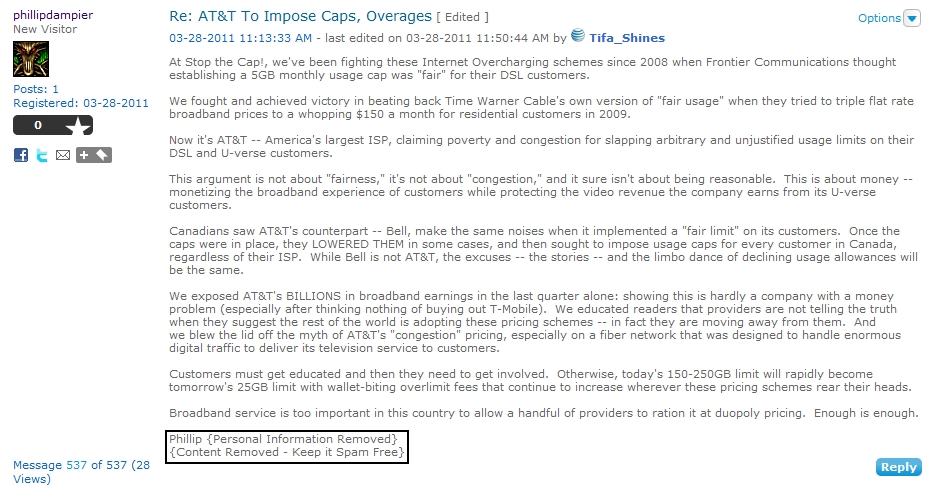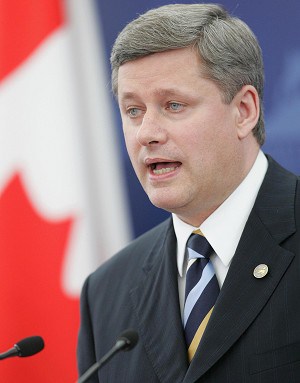 The next time you hear a provider telling you usage-capped broadband is the way the rest of the world does business, understand one thing:
The next time you hear a provider telling you usage-capped broadband is the way the rest of the world does business, understand one thing:
They are lying to you.
Stop the Cap! conducted extensive research on just what kind of broadband plans are sold around the world. We researched every member country of the Organization for Economic Cooperation and Development, and included several developing and non-aligned countries for good measure.
Our findings are conclusive: Unlimited broadband packages are the global norm. Some providers sell a mix of “light use” plans with usage allowances, but almost always side-by-side affordable, unlimited use options for those who want them. The only exceptions we found:
- Australia: The most common reason for usage caps comes from lack of capacity. Countries in the South Pacific continue to experience international capacity shortages that are gradually easing with the introduction of new underseas fiber cables. Several providers have promised to ease or eliminate caps as new capacity comes online.
- Canada: For reasons of marketplace concentration, lack of competition, and regulatory malpractice, Canadian broadband has lost its former status as a world-leader in broadband and has now become an also-ran, with almost universally usage-capped and throttled broadband from large cable and phone companies delivering expensive, comparatively slow service.
- Iceland: International capacity problems limit international broadband traffic with usage caps, but some providers offer unlimited service for domestic traffic.
- New Zealand: Just like Australia, New Zealand suffers from international capacity problems not seen in Europe, North America, or continental Asia. Both Australia and New Zealand are using public finances to overcome broadband shortages and reduce or eliminate usage caps.
Some providers in the United States are following Canada’s lead attempting to monetize broadband traffic to maximize profits. Some Canadian providers claim usage-based billing is necessary to finance the construction of broadband networks across the broad expanse of rural Canada. Yet Russia, a far larger country with fewer financial resources, succeeds in delivering unlimited service where Canada fails. Their arguments just don’t add up, and combined with the reality we present here proves providers are telling tall tales about the need for their Internet Overcharging schemes.
If Albania can deliver unlimited Internet access, why can’t your provider?
| Country | Provider |
| Albania | SAN Ltd. — Delivers “always on, always unlimited” DSL service |
| Austria | Telekom Austria — “Unlimited high speed Internet” |
| Australia | AAPT -- Delivers up to 1TB combined peak/off-peak usage; unlimited plans N/A |
| Belgium | Telenet — Offers multiple plans with no set limits. Reserves right to reduce speeds for highest use customers |
| Chile | VTR -- Unlimited Access |
| Czech Rep. |
O2/Czech Rep. -- Unlimited Access |
| Denmark | Tele Danmark -- Fast, unlimited service up to 20/2Mbps |
| Estonia | Elion -- Hyperfast 100Mbps Internet, no limits |
| Finland | Elisa -- Fixed broadband without fixed limits |
| France | Orange, Free, and Teleconnect all unlimited, all the time. |
| Germany | Deutsche Telekom -- Internet at a flat rate. |
| Greece | OTE — Conn-X, now up to 24Mbps and no limit. |
| Hungary | Magyar Telekom/DT -- Delivers up to 80Mbps unlimited access. |
| Iceland | All providers have usage caps on foreign traffic due to international capacity issues |
| India | India Bharat Sanchar Nigam, Ltd. offers uncapped plans. |
| Ireland | Irish Broadband promises "fast and unlimited access 24/7." |
| Italy | Tiscali: 20Mbps service, “browse the Internet without limits.” |
| Japan | KCN delivers up to 1Gbps service: rocket fast and never a limit. |
| Korea | All major providers deliver unlimited service packages. |
| Luxembourg | Numericable delivers 30Mbps service with "no volume limits." |
| Malaysia |
Persiasys offers a complete selection of unlimited use plans. |
| Mexico | Cablevision delivers up to 20Mbps service without usage caps. |
| Netherlands | Onesnet provides up to 100Mbps service at a monthly fixed rate. |
| New Zealand |
ISPs in NZ deliver unlimited broadband only during off-peak hours due to capacity. |
| Nigeria | Junisat delivers several unlimited satellite broadband packages. |
| Norway | Telenor sells ADSL and VDSL 'super broadband' packages without limits. |
| Philippines | PLDT and Digitel markets unlimited service in the Philippines. |
| Poland | Telekomunikacja Polska offers ADSL service across Poland with no use limitations. |
| Portugal | Portugal Telecom sells unlimited broadband service, often over fiber networks. |
| Russia | Koptevo, CentroSet, and MegaBistro offer all you can eat broadband buffets. |
| Singapore |
SingTel wants your family to enjoy 15Mbps unlimited Internet access. |
| Slovakia | Slovak Telecom/DT delivers optical Internet with unlimited access 24/7. |
| Slovenia | Telekom Slovenije offers unlimited access to their networks up to 100/100Mbps in speed. |
| Spain | Telefonica delivers unlimited broadband service to all its customers who want it. |
| Sweden | Com Hem, Sweden's national cable company, offers unlimited access up to 100Mbps. |
| Switzerland | Swisscom offers unlimited downloads across all but one "lite use" plan. |
| Turkey | SuperOnline delivers more than a half-dozen unlimited access packages in Turkey. |
| UK |
Virgin Media offers unlimited broadband access in the UK. BT plans to soon. |


 Subscribe
Subscribe








